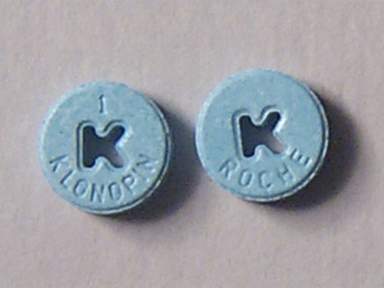Clonazepam, a medication often associated with managing anxiety and seizures, has become a household name for those dealing with specific medical conditions. This article delves into the nitty-gritty details, from its color and dosages to its uses and side effects.
Understanding Clonazepam
What is Clonazepam?
Clonazepam belongs to a class of medications called benzodiazepines. It works by calming the brain and nerves, making it effective for treating anxiety, seizures, and panic disorders. Its chemical composition is designed to enhance the activity of gamma-aminobutyric acid (GABA), a neurotransmitter that reduces excessive brain activity. Buy Clonazepam 1 online
Common Dosages
Clonazepam is available in various dosages, including 0.5 mg, 1 mg, and 2 mg. Each dosage serves specific medical needs, with 1 mg being a standard prescription for moderate conditions.
The Color of Clonazepam 1 mg
How Pill Color is Determined
Pharmaceutical manufacturers often assign specific colors and shapes to medications for easy identification. Regulations ensure that these identifiers remain consistent across batches but may vary between manufacturers.
Identifying Clonazepam 1 mg by Color
Clonazepam 1 mg tablets are typically blue. However, the exact shade and additional markings depend on the manufacturer. Always verify with your pharmacist if you’re unsure about your medication.
Clonazepam Side Effects
Common Side Effects
While Clonazepam is effective, it comes with potential side effects, such as:
- Drowsiness
- Dizziness
- Fatigue
Serious Side Effects
In rare cases, Clonazepam may cause severe reactions like:
- Memory problems
- Confusion
- Difficulty breathing
Seek immediate medical attention if these occur.
Is Clonazepam a Sleeping Pill?
Clonazepam and Sleep Disorders
Though not a traditional sleeping pill, Clonazepam is sometimes prescribed for sleep issues linked to anxiety. Its calming effects can help improve sleep quality.
Differences Between Clonazepam and Traditional Sleeping Pills
Unlike standard sleep aids, Clonazepam addresses underlying conditions like anxiety, making it a dual-purpose medication.
Is 1 mg Clonazepam a High Dose?
Clonazepam Dosage Guidelines
The typical starting dose is 0.25 mg to 0.5 mg per day. A 1 mg dose may be considered moderate but is higher for first-time users.
Factors Affecting Dosage
Age, weight, and tolerance significantly influence the prescribed dose. Always follow your doctor’s advice.
Understanding Clonazepam 0.5 mg
Purpose of Low Doses
The 0.5 mg dosage is commonly prescribed for beginners to minimize side effects.
Transitioning Between Doses
Doctors may gradually increase doses to achieve the desired therapeutic effect.
Clonazepam Uses for Sleep
How Clonazepam Affects Sleep
Clonazepam reduces brain activity, promoting relaxation and aiding sleep. It’s particularly helpful for REM sleep disorders.
Long-Term vs. Short-Term Use
Long-term use may lead to dependence. It’s generally recommended for short-term treatment unless otherwise directed by a doctor.
Overview of Clonazepam 2 mg
Indications for High Doses
The 2 mg dosage is reserved for severe cases of anxiety or epilepsy where lower doses are ineffective.
Safety Concerns
High doses require close medical supervision due to the risk of dependence and severe side effects.
Clonazepam Mouth-Dissolving Tablets
What are Mouth-Dissolving Tablets?
These are fast-acting tablets that dissolve in the mouth, offering convenience and quicker relief.
Uses of Clonazepam Mouth-Dissolving Tablets
They are often prescribed for panic attacks or when immediate effect is necessary.
Conclusion
Clonazepam is a versatile medication, but understanding its forms, dosages, and uses is crucial for safe and effective treatment. Always consult a healthcare provider before starting or adjusting any medication.
Klonopin 1 mg for sale


